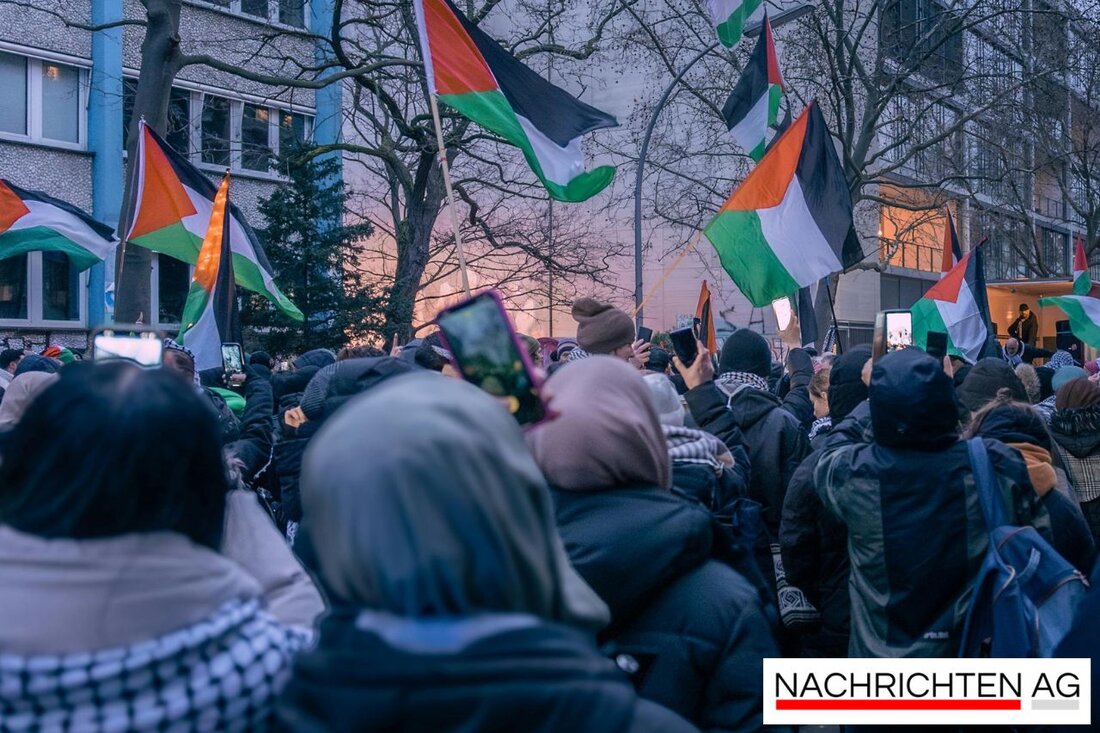Handala protest camp: Bremen students demand freedom and justice!
“Handala” protest camp at the University of Bremen calls for solidarity with Palestine and criticizes the university management.

Handala protest camp: Bremen students demand freedom and justice!
On June 30, 2025, a protest camp called “Handala” was launched in front of the MZH building at the University of Bremen. The Palestinian solidarity groups “Uni(te) for Pali” and “Seeds of Palestine” organized this action to send a clear signal against warmongering and genocide in Palestine. The name “Handala” goes back to a comic character who has stood for resistance against the Israeli occupation since 1969 and perfectly symbolizes the protesters.
The camp is aimed not only at students, but also at citizens who are committed to fundamental democracy and human rights. The camp's events included discussions about the complicity of German universities in the Gaza genocide, the role of imperialism and international solidarity with the Palestinian people. Open plenary sessions, Islamic prayers and cultural evenings provided variety in the program that encouraged participants to think.
Sustainable protest
The protesters have put forward five key demands that support the rights of Palestinians:
- Klare Positionierung gegen den Genozid in Gaza.
- Unterstützung palästinensischer Akademiker:innen im Gazastreifen und Diaspora.
- Einhaltung der Zivilklausel, Transparenz und die Beendigung der Verbindungen zu Rüstungsunternehmen.
- Keine Zusammenarbeit mit israelischen Institutionen, die an illegalen Siedlungen und Apartheid beteiligt sind.
- Einhaltung von Wissenschafts- und Meinungsfreiheit.
A central theme of the protest was the ban on speaking imposed by Rector Prof. Dr. Jutta Günther for the event with the psychoanalyst Iris Hefets. This event on the theme of “Silence and Guilt” was nevertheless held at the Zion Community Center on Kornstrasse and was well received, with the audience responding with a standing ovation. This has further fueled the ongoing protest against the space ban.
Criticism of the university management
The university management is exposed to massive criticism, including from university professors who consider the procedure scandalous and want to see the university as a place for freedom of expression and academic freedom. Dr. Detlef Griesche, chairman of the German-Palestinian Society, described the ban as “foolish”. These clashes in Bremen are not isolated, they are part of a larger trend that can also be seen at other German universities such as Berlin and Leipzig, where similar protests are taking place.
Discussions surrounding the legitimacy of these protests are ongoing both at the university level and in politics. It is repeatedly emphasized that universities should be places of differentiated debate, while the boundaries between legitimate criticism of Israel and anti-Semitism are often viewed as fragile. Critics warn of a decline in freedom of expression, while others are increasing pressure on universities.
In addition to the demands of solidarity with Palestine, current issues are also being addressed at the University of Bremen, such as the increase in the semester fee by almost 100 euros and the nationwide austerity policy. At the general assembly, which took place again after 20 years, a common resistance against the federal government and its political decisions was called for. An alliance between students and workers is seen as necessary to stand together against the repeated cuts in education and research.
With a clear call to collectivize the struggles at the university and an emphasis on political education, the protesters are expressing their determination. They not only demand transparency about the university's cooperation with defense companies, but also a reorganization of their financial management by the university's students and employees.
The extent to which these efforts and demands will be heard remains to be seen, but the protesters show that they are ready to fight for their ideals. The current situation in the Gaza Strip, which began with a Hamas attack on Israel on October 7, 2023, gives additional emphasis to this commitment and shows the importance of speaking out where human rights are at risk.

 Suche
Suche
 Mein Konto
Mein Konto